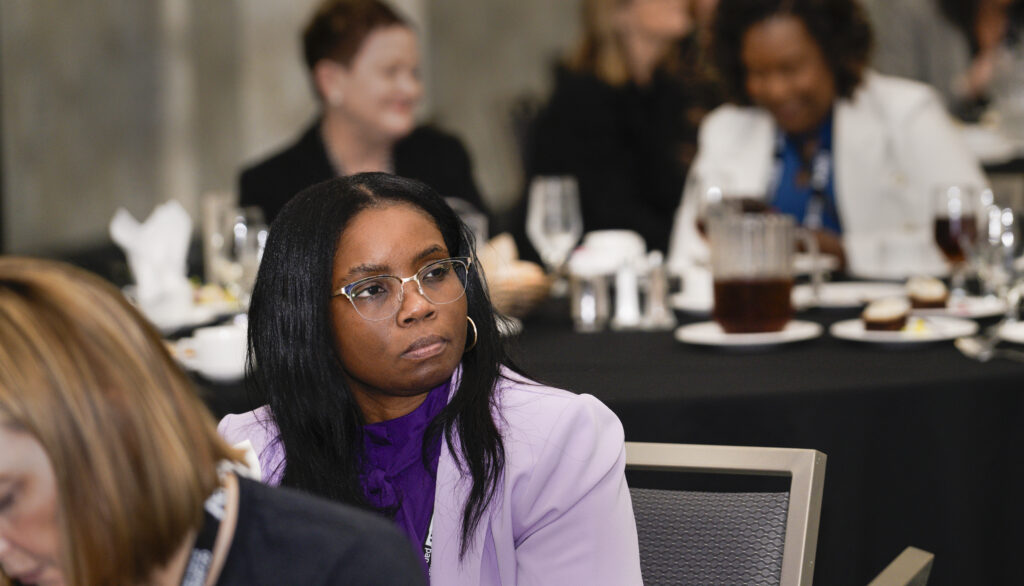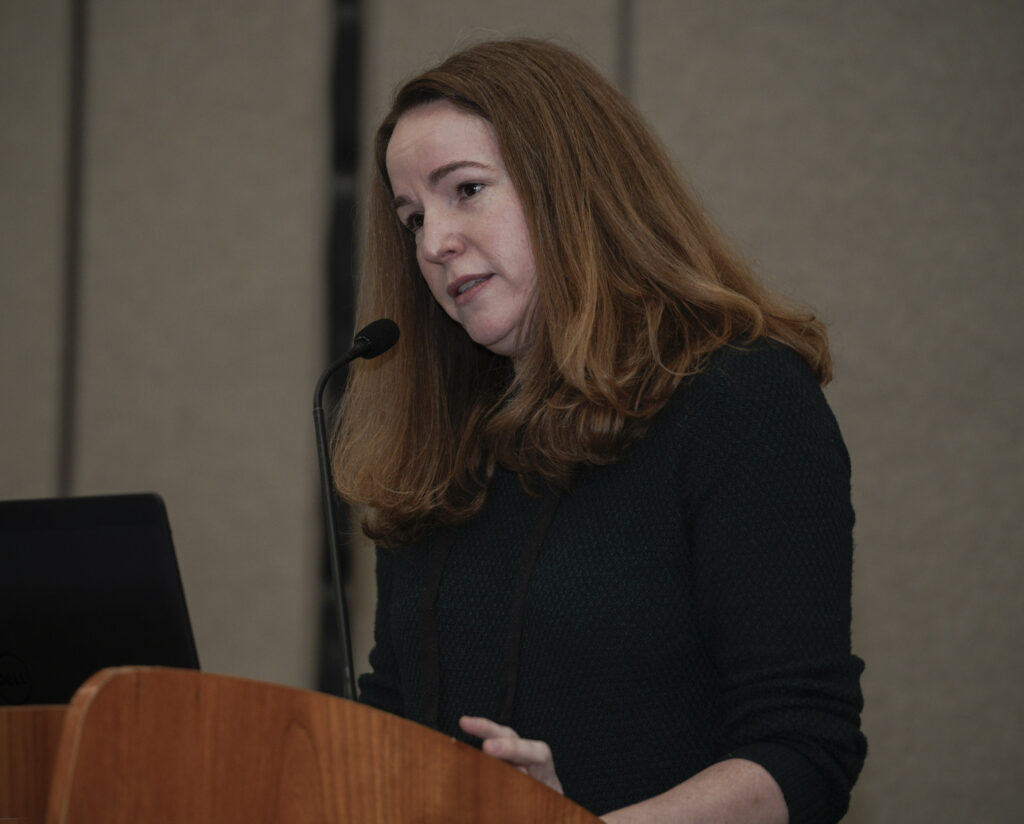Pulitzer Prize-winning education journalist Cara Fitzpatrick gave attendees plenty to chew on during her remarks on the school choice movement that highlighted Thursday’s Federal Relations Luncheon, sponsored by Navigate 360.
Fitzpatrick, an editor at the nonprofit education news organization Chalkbeat, provided an overview of her book The Death of Public School: How Conservatives Won the War Over Education in America. It’s a title she admits often rankles folks on both sides of the political aisle.
“The idea that public schools might be dying or even dead isn’t a popular one — with conservatives or liberals,” Fitzpatrick told a San Diego convention center ballroom of public school leaders. “Conservatives are happy to win, but they don’t want to take credit for inflicting any harm on the public schools. Liberals aren’t ready to concede the war.”
Noting that most American students still attend public school, she clarified that the death of public schooling is more the death of an idea — the notion of public school as “a place where children of different religious, racial and socioeconomic backgrounds come together to learn, not just academics but the shared values of a nation.”
In recent years, Republicans such as Florida Governor Ron DeSantis have shifted the definition of public education to something else entirely, viewing it as any education paid for with tax dollars.
Looking through an objective journalistic lens, Fitzpatrick traced the origins of the school choice movement from its origins in the middle of the 20th century. In the American South, school vouchers were a workaround to enable white families to remove their children from newly desegregated schools.
Elsewhere, famed economist Milton Friedman argued for vouchers as a way to break the government monopoly on public education and create a free market.

Since picking up political momentum in the 1990s, Fitzpatrick noted that school choice has quietly won the policy battle through legislative and legal victories. Several states have enacted education savings accounts — public funding parents are allowed to use for educational expenses.
What’s the impact? Student outcome data, she says, present a mixed bag. Additionally, she pointed out that the post-COVID-19 playbook for school choice activists has been to exploit culture war issues to sow distrust in public education.
“These words have an effect,” Fitzpatrick said. “Trust in public education has declined among the general public.”
She closed by posing a series of questions to the lunchtime crowd. Among them:
- What obligation does any parent have to the other children in their surrounding community?
- If public education is any education paid for with public dollars, what does that mean for the future of the public school?
- What does that mean for the future of democracy?
Difficult topics to swallow, indeed.
(Michael Klitzing is a freelance writer based in San Diego and a reporter for Conference Daily Online.)


